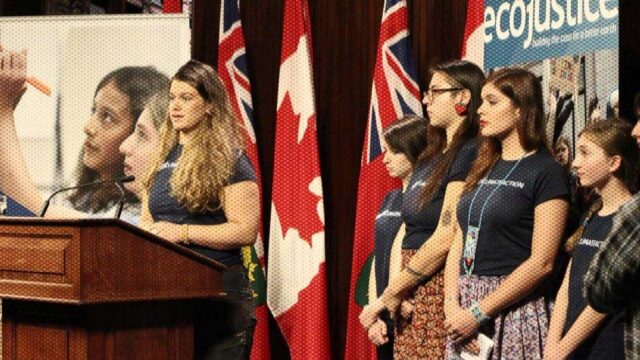This opinion piece was originally published by The Times Colonist on April 4th, 2022.
Climate targets only work when you have plans to achieve them.
Canada has a long tradition of setting targets to reduce carbon pollution, then dismally failing to take the action needed to achieve them. B.C. is no exception — missing targets in 2012, 2016, then scrapping its 2020 target when it became clear it was impossible.
Over the past few years, in a bid to put an end to this dismal record, first the B.C. and then the federal governments have adopted new “climate accountability laws” designed specifically to hold themselves to account for meeting their climate targets.
The idea behind such laws is that by complementing legislated targets with a regime of detailed planning, regular reporting and third-party oversight, governments will be forced to deliver the credible plans that would actually deliver on their climate commitments.
Last week, the federal government tabled its first plan under the federal climate accountability act. While it sets a new standard for detail and rigour in Canadian climate planning, it suffers from all too familiar problems: Vague on important details, soft on the oil and gas industry, and lacking in a long-term vision for decarbonization beyond 2030.
The next day, Sierra Club B.C., represented by Ecojustice lawyers, filed litigation against the B.C. government for failing to deliver the plans required under the province’s climate accountability act.
The government’s most recent report focuses entirely on its 2030 target, and fails to explain how B.C. will continue progress towards achieving its targets for 2025, 2040 and 2050, as well as a crucial target for cutting pollution from the oil and gas target: A major concern given that sectors large and growing emissions, fueled by B.C.’s push for fracked gas and megaprojects like LNG Canada.
B.C. likes to call itself a climate leader, but it has failed a critical test by not complying with its own climate accountability legislation. This failure undermines the government’s climate leadership credentials and its commitment to transparency and accountability on climate action.
Meanwhile, the province continues to emit more carbon pollution while the climate crisis ramps up. With the increased frequency of deadly weather events caused by the climate crisis, anything less than full transparency about their plans is simply unacceptable.
Climate targets matter. They are the cornerstone of accountability — the crucial yardstick that tells us whether the government of the day is cutting emissions in line with the science. But they are only as good as the plans and policies that are put in place to achieve them. Climate accountability laws were supposed to herald a new era. The era of lots of talk but precious little action was supposed to be coming to an end. But old habits die hard.
So the fact that both the federal and B.C. governments continue to publish weak plans despite these laws should concern all Canadians. If you fail to plan, you plan to fail, and we can’t afford any more climate failures.
The climate emergency leaves no room for error. After decades of failure, our window to take action to combat the climate crisis is rapidly closing. We need laws that hold government to account on climate. And we need civil society to uphold those laws through the courts when government breaks them.





